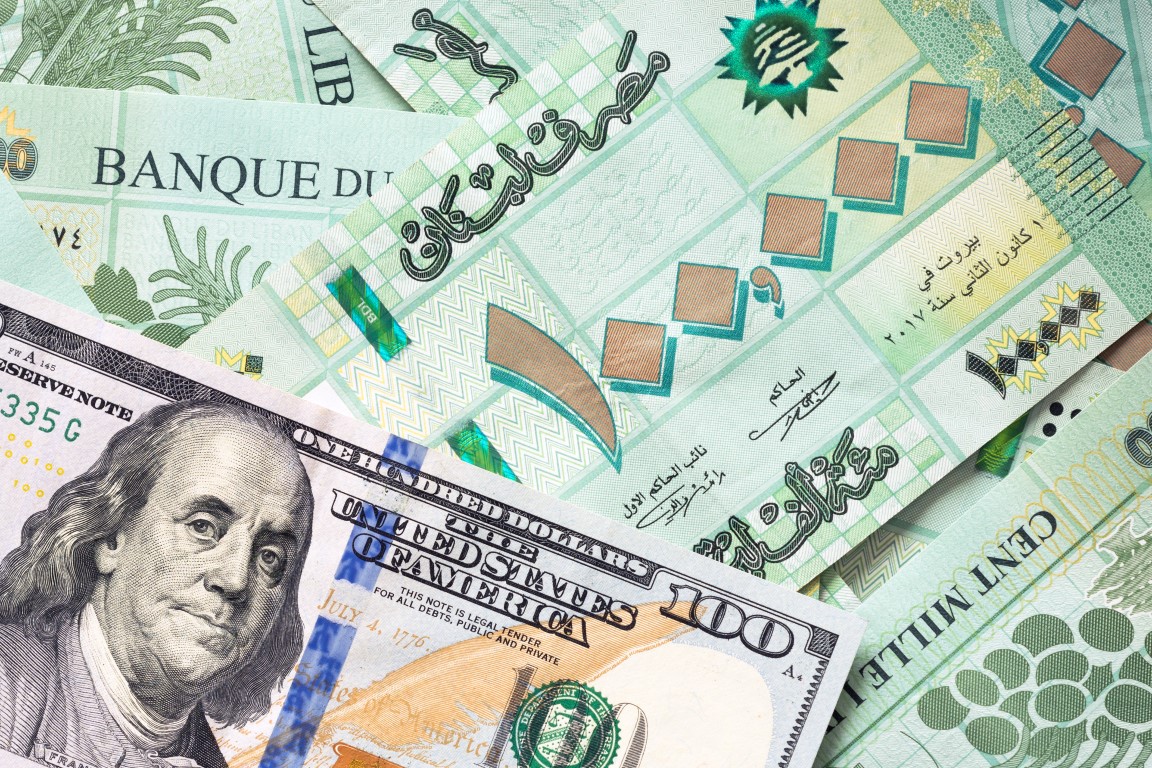The excess volume of Lebanese currency in circulation over the past months has been alarming and is causing inflation to spiral out of control amid rising demand for US dollars and other foreign currencies, financial analysts have told Arabian Business.
Currency in circulation soared 137 percent to LBP23.2 billion by July 15, from LBP9.8 billion at the end of 2019 and 257 percent from LBP6.5 billion in September 2019.
The central bank printed LBP13 trillion in 50,000 and 100,000 bills last autumn. In weight, this amounts to 9 tonnes of paper money.
Analysts said the central bank is not printing money as a result of an increase in gold and foreign currency reserves, but to cover the debts of banks and treasury.
The printing process as a solution to the liquidity crisis in the treasury came at the expense of the Lebanese pound, and everyone who receives their salary in the local currency, be it in the private or public sector, they added.

Printing more Lebanese pounds when the reserves of foreign currencies (especially the US dollar) are depleted also means that the value of the pound will continue to drop in the face of these currencies, analysts told Arabian Business, adding that it will have a direct impact on the local market and prices will soar as a result.
People lined up in front of bakeries and butcher shops hoping to buy goods before prices rise the next day.
The Lebanese pound has lost around 80 percent of its value in a year. Money exchangers on the black market were buying the dollar for around LBP8,300 on Friday. The associated skyrocketing inflation hit a record 120 percent by the end of August.
Dr Marwan Barakat (pictured above), group chief economist and head of research at Bank Audi, told Arabian Business: “One of the main reasons the Lebanese pound came under significant pressure on the parallel market causing corollary inflationary spikes in recent times is the excessive money creation in Lebanese pounds. The reasons for the depreciation of the local currency relative to the US dollar are actually multiple.
“First, they revolve around the increased political uncertainties leading to a gradual loss of confidence. Then there is the significant creation of money in the Lebanese pound with the currency in circulation almost doubling on an annual basis amid large fiscal deficits with direct monetisation on behalf of the Central Bank. This excessive money creation has put pressure on the parallel exchange market and fueled inflation.”
He added: “While the effects of any immediate measure to curtail currency depreciation and inflation would remain temporary, a containment of monetary drift looking forward is conditional upon a positive confidence shock related to political and economic management and a parallel containment of Lebanon’s excessive creation of money.”
Dr Samih Azar, professor, Faculty of Business Administration and Economics, Haigazian University, Beirut, told Arabian Business that the excess supply of currency in circulation has caused an excess demand for the US dollar in the alternative spot market and the depreciation of the Lebanese pound.
“The exchange value of the Lebanese pound doesn’t depend only on the actual currency in circulation, but should be adjusted to dwindling currency demand. In addition, underestimating the exchange value of the Lebanese pound may result from overstating the actual data on currency supply.”
He added: “Some of the reasons for the underestimation may be due to the subsidisation of basic goods and commodities by the central bank, which has signaficantly reduced the demand for US dollars, especially by traders… Moreover, no or little subsidies will inevitably lead to consumer price hikes, which will cause further deterioration.”






